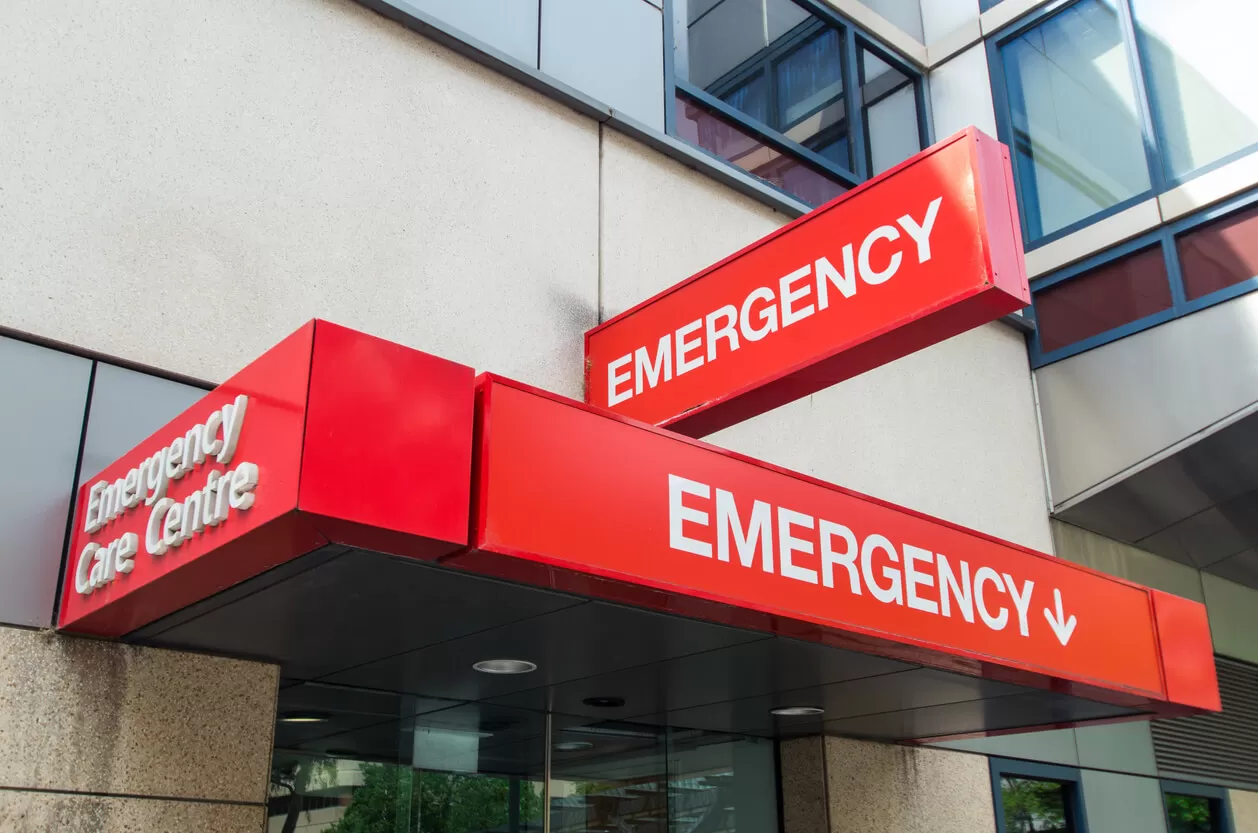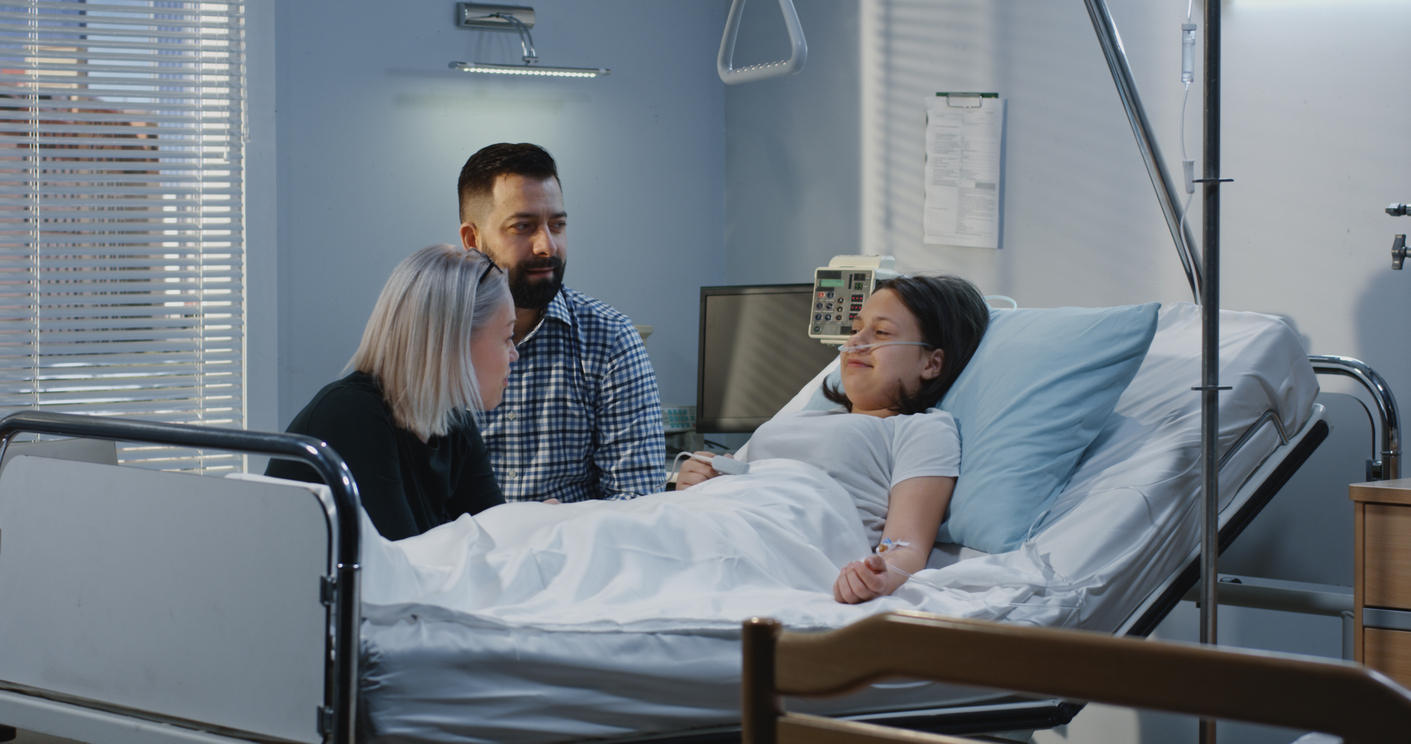A pinched nerve can make even simple movements painful, affecting your daily routine. In a study analyzing pain cases in the emergency department, 3.17% of all patients visited due to back pain. Among these cases, 6.7% were diagnosed with non-specific or mechanical low back pain that might involve nerve issues.
Keep reading to learn how prompt medical help and personalized treatments in an emergency room can help you tackle these symptoms, providing relief and guiding you toward recovery.
What Is a Pinched Nerve?
A pinched nerve results from adjacent tissues putting excessive pressure on a nerve. This pressure disrupts the nerve’s regular functions, often affecting the spinal nerve, causing pain, tingling, or weakness. Nerves in the cervical spine and lumbar region frequently experience this compression.
Common Causes of a Pinched Nerve
Many factors can cause pinched nerves, each bringing discomfort and potential pain:
- Disc Herniation. Discs act as cushions between the bones in your spine. When the inner gel pushes out, it presses on nearby nerves, leading to pain or tingling sensations. This is a common issue in the lower back and neck areas.
- Bone Spurs. Over time, wear and tear on your joints can cause bone spurs to develop. These small bony projections narrow the space where nerves pass, squeezing them and causing symptoms like pain or numbness.
- Traumatic Injury. Sudden impacts, such as those from a fall or car accident, can jar tissues and lead to nerve compression or spinal cord injury. This unexpected pressure can cause intense pain or loss of function, depending on the nerve affected.
- Repetitive Motion. Repeatedly performing the same movement, like typing or using hand tools, can lead to swelling and nerve compression. Carpal tunnel syndrome is a well-known result of such repetitive actions.
- Prolonged Positions. Staying in one position for too long, especially if poor posture is involved, increases the pressure on nerves and may lead to conditions like cervical radiculopathy or lumbar radiculopathy. This is often seen in people who sit for extended periods without proper back support.
- Obesity. Extra weight strains the body, putting additional pressure on nerve pathways, particularly in load-bearing areas like the lower spine. Additionally, inactivity-related muscle weakness can reduce spinal support, further contributing to nerve compression.
- Swelling or Inflammation. Conditions like arthritis cause the surrounding tissues to swell, limiting space and pressing on nerves, which triggers pain or weakness.
- Tumors. Though less common, growths can develop and press on nerves, leading to significant discomfort or other symptoms.
Identifying Symptoms of a Pinched Nerve
Spotting the symptoms of a pinched nerve can help you take early action and seek necessary treatment:
- Tingling or Numbness. This may feel like pins and needles or parts of your body “falling asleep.” It often occurs in the hands, fingers, or other areas served by the nerve.
- Muscle Weakness. When nerves cannot carry strong messages to your muscles, they may become weak. This weakness can affect your ability to grip, lift, or move normally.
- Loss of Bladder Control. In severe cases, nerve compression might lead to difficulty controlling your bladder, a symptom that needs immediate medical attention.
- Sharp or Burning Pain. You might experience sharp pain that travels along the path of the nerve. This pain can intensify with certain movements or positions.
- Increased Sensitivity. The affected area may become more sensitive to touch or changes in temperature, feeling unusually tender or reactive.
- Pain Worsens With Movement. Activities that involve twisting, lifting, or bending might worsen pain, indicating nerve involvement.
- Limited Range of Motion. You might find it difficult to move your neck, arms, or legs fully due to pain or stiffness.
Deciding When to Visit the Emergency Room for a Pinched Nerve
Knowing when to seek emergency medical care is important for managing a pinched nerve effectively. Visiting the emergency room becomes necessary if you experience:
Persistent or Severe Pain
If you find that your pain doesn’t ease with rest or over-the-counter pain medication, it might be a sign that the nerve is under significant stress and requires professional attention.
Acute Nerve Symptoms
Sudden numbness, the inability to move a part of your body, or sharp pain that disrupts your daily routine are indicators that your condition needs immediate evaluation. These symptoms can suggest a serious issue that should be checked promptly.
Non-Response to Home Treatments
If rest, ice, and over-the-counter medications haven’t provided relief, it could be a sign of a more serious issue requiring medical intervention to address the root cause.
What Can the Emergency Room Do for a Pinched Nerve?
At the ER, doctors focus on quick relief and assessing the severity of your nerve issue. Here’s what to expect:
Initial Assessment and Triage
- Symptom Evaluation. Upon arrival, medical staff will quickly assess your symptoms, asking about pain levels, affected areas, and any loss of function. This helps prioritize your treatment needs based on urgency.
- Triage Process. This involves sorting patients based on the severity of their condition, ensuring that those with the most pressing issues receive prompt attention.
Diagnostic Procedures
- Imaging Tests. Advanced tools such as X-rays, MRIs, or CT scans are used to pinpoint the exact location and cause of the nerve compression. These tests help visualize the structures pressing on the nerve.
- Physical Examination. Physicians may conduct a physical exam to test muscle strength, reflexes, and sensation in the affected area, providing additional insight into nerve function.
Treatment Options
- Medication. Physicians may administer anti-inflammatory drugs or steroid injections to reduce swelling and pain.
- Supportive Care. Providing braces or support devices to limit movement and reduce pressure on the nerve, allowing it time to heal.
Advanced Interventions
- Surgical Options. In cases where initial treatments do not provide relief, recommendations for procedures, such as decompression surgery, may be necessary to relieve pressure on the nerve.
- Referrals. Patients may be referred to specialists, such as a neurologist or orthopedist, for further evaluation and management.
Discharge and Follow-Up
- Home Care Instructions. Patients receive guidance on how to manage their condition at home, including pain management techniques and modifications to daily activities.
- Physical Therapy Recommendations. Physical therapy may be recommended to strengthen surrounding muscles, improve mobility, and prevent further nerve compression.
- Follow-Up Appointments. Scheduling follow-ups ensures continued care and monitoring of recovery progress.
Managing Pinched Nerves at Home
For those experiencing mild pinched nerve symptoms, several practical home strategies can help ease discomfort and support recovery:
- Rest. Limit physical activities, especially those that trigger or worsen symptoms, to give your body a break. Proper rest allows the affected nerves and surrounding tissues time to recover and heal.
- Ice and Heat Application. Apply ice packs wrapped in a cloth to the affected area for 15-20 minutes at a time to reduce inflammation and numb pain. After the initial swelling goes down, use heat packs to ease muscle tension and enhance blood flow, promoting healing.
- Pain Medications. Over-the-counter options like ibuprofen or acetaminophen help manage mild to moderate pain and reduce inflammation. Follow the label instructions for proper dosage and frequency, and consult a healthcare provider if you’re unsure which medications are appropriate.
- Gentle Stretches. Simple, gentle exercises can improve flexibility and reduce tension in the muscles around the affected nerve, promoting better mobility. If unsure about which exercises to perform, consider seeking advice from a physical therapist who can tailor a program to fit your specific needs.
Consequences of Ignoring a Pinched Nerve
Choosing to ignore symptoms of a pinched nerve can have long-lasting impacts on your health. Without timely intervention, a pinched nerve may result in several complications:
Chronic Pain
If ignored over time, a pinched nerve can lead to continuous pain, which becomes a constant presence in daily life. This ongoing discomfort can affect one’s ability to perform regular activities and severely impact one’s overall well-being.
Permanent Damage
Prolonged pressure on a nerve without relief can cause irreversible damage. Even if compression is eventually relieved, the nerve may not fully recover, leading to lasting symptoms such as numbness or weakness.
Muscle Atrophy
When a nerve fails to deliver nerve signals needed for muscle function, muscles can begin to shrink and weaken over time. This process of atrophy further impairs movement and strength.
Decreased Mobility
Persistent nerve compression can gradually reduce your range of motion, leading to stiffness and restricted movement that can make it difficult to walk, bend, or perform other essential activities.
Reduced Quality of Life
The combination of pain, physical limitations, and potential nerve damage can significantly diminish one’s quality of life, affecting mental health and emotional well-being.
Preventive Measures for a Pinched Nerve
Taking steps to prevent a pinched nerve can help you avoid the discomfort and complications associated with nerve compression. Here are some simple yet effective practices to lower your risk:
- Maintain Good Posture. Proper spinal alignment is key to reducing strain on your nerves. Whether sitting at a desk or standing, keeping your back straight and your shoulders relaxed helps distribute weight evenly and minimizes nerve pressure. Consider ergonomic chairs or standing desks if needed.
- Stay Active. Regular physical activity strengthens the muscles supporting your spinal column. Exercises like walking, swimming, and yoga improve flexibility and core strength, reducing the likelihood of nerve compression. Stretching before and after workouts also helps keep your muscles healthy.
- Vary Repetitive Tasks. Avoid repetitive motions that can lead to strain. Take regular breaks to stretch and change positions, particularly during tasks that involve constant typing or machinery use. Using ergonomic tools and equipment can also reduce risk.
- Maintain a Healthy Weight. Extra body weight can increase pressure on the spine and nerves. Maintaining a balanced diet combined with regular exercise helps manage weight and supports overall spinal health.
- Use Proper Lifting Techniques. When lifting objects, bend at the knees and keep the load close to your body to avoid putting excess strain on your back and neck.
Find Relief: Consult With Us Today
Dealing with a pinched nerve doesn’t have to hold you back. Understanding and addressing nerve pain is key to enjoying a pain-free life. At Reliant Emergency Room, we’re here to help with cutting-edge imaging tests and compassionate medical care.
Our team is committed to providing reliable and affordable emergency services tailored to your needs. Whether you’re facing a sudden injury or ongoing discomfort, we are ready 24/7 to offer the highest-quality care. Take charge of your health today. Contact us now, and let us support your journey to well-being.








